Have you ever sat down to read a book you were determined to hate, but ended up falling in love? Maybe it was a weird cover. Perhaps it was a bad review. Or maybe you’re an iconoclast that wanted to hate the book everyone else was gushing about. But sometimes the books we want to hate just won’t play along with our plans. And before you know it, you’re hooked.
Take for example beloved author of Bad Feminist and Hunger Roxane Gay. After reading the Pulitzer Prize winning novel Less by Andrew Sean Greer, she left this relatable review on Goodreads:
“I wanted to dislike this book for petty reasons grounded in irrationality but it’s quite a brilliant novel, with exceptional writing and a depth of character rarely seen in fiction. I’m also surprised I loved this book because I hate books about writers.
“Less is a frustrating man who gets in his own way all too often. There were many times when I wanted him to get his head out of his ass. Also, the narration doesn’t quite work until the very end and then it all makes sense so I had to go back and read certain parts. But it’s fine. As a middle-aged midlist writer, Arthur Less’s laments are many. He needs money. His long term not boyfriend is getting married. And so he fashions an itinerary that will have [him] traveling the world and as he travels the world, we learn of how he comes to this moment in his life, turning fifty, alone, full of longing. There is a lot that is funny and relatable about the writing life. In the end though, this is one of the most satisfying love stories I’ve ever read. As I read the last few pages this morning, I found myself crying. I found myself believing that love always finds a way. I admire any book that can remind me of that in a largely cynical world.”
So with that review in mind, I asked my fellow Book Riot contributors to share their stories of books that turned their hate to love. Please note that we usually include significant representation of works by authors of color, and this list doesn’t meet our typical standards. I like to think that’s because we don’t often find ourselves expecting to hate books by diverse authors; those books have our heart from the beginning.
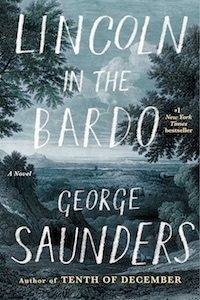 Lincoln in the Bardo by George Saunders
Lincoln in the Bardo by George Saunders
Okay, so this was less “I want to hate this book!” and more “Why would I ever read this book!?” I’m generally not into experimental fiction, and even though I kept hearing about how amazing this novel was, I ignored it for months, thinking, “Well, I’m obviously going to hate that, so why bother wasting my time?” I’m not even sure what convinced me to finally (and grumpily) give it a try. I guess I just succumbed to the pressure of the book world. I listened to the audiobook. Then a few months later, I listened to the audiobook again, because I could not stop thinking about it. Because rarely has a book made me cry so hard, or moved me so profoundly, or utterly changed the way I think about fiction. Lincoln in the Bardo (yup, I’m going to say it) is one of my favorite novels of all time. Ever. I was utterly blown away by it. Thank everything that is holy that I got over myself and gave it a chance.
—Laura Sackton
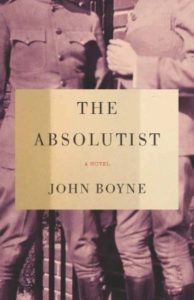 The Absolutist by John Boyne
The Absolutist by John Boyne
I read this for one of my several million LGBTQ book clubs. Despite their multiplicity, these clubs unanimously prefer to read thinky mid-century novels about gay white men in Europe. To say that I am done with thinky mid-century novels about gay white men in Europe is such a goddamned understatement that it just won my weekly mental understatement leaderboard and it’s only Wednesday.
That said, The Absolutist really knocked my socks off. Imagine if Benjamin Britten decided to build an iron maiden out of a young soldier’s regrets. It’s absolutely the most brutal war novel I’ve ever read. I think the reason that it hit me so hard is that it sets up the war as a stage where actors must perform in a lurid, directorless opera of duty and conformity. The point isn’t that war is hell, or even that it was hard to be gay in the British army back then. It’s that rigid social scripts are chains we choose to wear, and if you remove them, the people who are in love with those bonds will go out of their way to crush you one way or another. The book is a devastating tragedy that I expect to stick with me for a very long time.
—Anna Gooding-Call
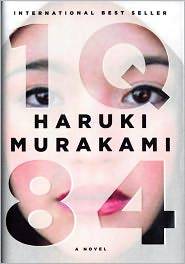 1Q84 by Haruki Murakami
1Q84 by Haruki Murakami
I heard a lot about Haruki Murakami before I picked up one of his books, including his bizarre prose, slow or non-existent plots, one-dimensional female characters, and problematic depictions of sex. But when one of my best friends earnestly and insistently pushed a copy of 1Q84 into my hands, I decided to give it a shot, even though I was fully prepared to hate it. And while the last two criticisms are certainly true (especially in his other work that I’ve read since), I had to admit that I really loved the book. His unique, surrealist style made the entire thing feel like a fascinating fever dream, and the unexpected fantastical elements of the story kept me engaged through all 925 pages. There’s something about Murakami’s writing that is difficult to describe, but magical to read.
—Susie Dumond
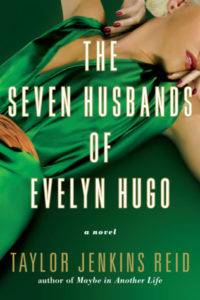 The Seven Husbands of Evelyn Hugo by Taylor Jenkins Reid
The Seven Husbands of Evelyn Hugo by Taylor Jenkins Reid
I didn’t expect to hate this book, mind; it’s just outside of my normal reading zones. Normally I go for YA or genre fiction. A librarian recommended it to me as part of a Valentine’s Day blind date. (Really cool librarian, by the way.) My skepticism grew when the story starts as a magazine writer finds out that Evelyn wants her to do a bestselling biography of this elusive star. Still, I kept reading.
The Seven Husbands talks about more than the dangers of Hollywood and needing to keep up appearances. It discusses sexuality, abusive marriages, how history makes us complicit, and the lies that define our narratives. I don’t agree about the “right-to-die” theme that is woven through the story, but that is a personal preference. I did enjoy this story a lot and read it all to the end.
—Priya Sridhar
 Harry Potter and the Sorcerer’s Stone by J.K. Rowling
Harry Potter and the Sorcerer’s Stone by J.K. Rowling
Are you done throwing rocks? Okay. So, Harry Potter came out in the U.S. when I was almost 7. I can still remember a friend telling me on the school bus how amazing this book was and how I had to read it. I was just entering my hipster phase where anything worth liking was not enjoyed by ~the mainstream~, so Harry Potter was out as far as I was concerned. Besides, who wanted to read a book about a school run by a boar with warts on his hairy face standing upright in a buttoned green cardigan with a school crest? (This was my ignorant understanding of “Hogwarts.” I have no idea from where, exactly, I got that idea other than Hog = boar and warts = warts. It’s oddly specific.) I hate that I can’t remember what eventually brought me to pick up the book (maybe to prove I’d hate it?), nor do I remember the first time I read it. But, obviously, I was hooked. Several years later, I was with hundreds of others lined up outside a Barnes & Noble awaiting the midnight release of Order of the Phoenix, then Half-Blood Prince, then Deathly Hallows. The rest is history.
—Abby Hargreaves
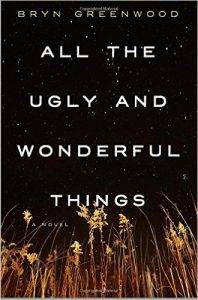 All the Ugly and Wonderful Things by Bryn Greenwood
All the Ugly and Wonderful Things by Bryn Greenwood
I’m all for books that push the boundaries and venture into touchy subjects. Books that cover the taboo topics and do it well are completely in my wheelhouse, but this book made me so uncomfortable from the start. I’ve read countless books about abuse of children by adults, but a CONSENSUAL romantic relationship between a child and an adult was something completely foreign to me. I was outrageously uncomfortable while reading this book and had to take so many breaks because the material was just too much. But after finishing the book and having a while to reflect, I can’t say enough amazing things about this book. It is definitely not for everyone, I will absolutely recognize that—but it is beautifully written and forces you to think. This book broke and healed my heart and I can’t think of higher praise than that.
—Kate Krug
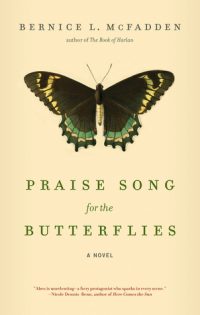 Praise Song for the Butterflies by Bernice L. McFadden
Praise Song for the Butterflies by Bernice L. McFadden
This is going to sound shallow, but I find butterflies corny. So, any book with a giant butterfly on the cover instantly makes me want to roll my eyes. But this year I’ve decided to read the Women’s Prize for Fiction longlist, which just so happens to feature a book with a giant butterfly on the cover. Long story short: I was blown away by this book (which, by the way, didn’t have much to do with butterflies at all). Taking place in a fictional African country, Praise Song is about a young girl who is traded as penance by her father to become a ritual slave to a priest in return for good fortune. This is a heavy book, but it moves quickly, spanning decades without lingering on any one trauma. McFadden doesn’t waste words, sometimes moving us years between paragraphs. I’m ashamed to say I hadn’t heard of the African women known as trokosi, or shrine slaves, but I’m thankful McFadden has brought their stories to the light.
—Sophia LeFevre
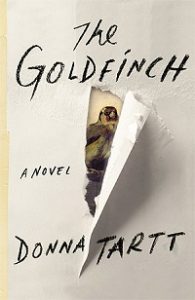 The Goldfinch by Donna Tartt
The Goldfinch by Donna Tartt
When this book released, I was preoccupied with finishing my senior year of college. I vaguely remember classmates praising it as their “new favorite book.” To me, that’s a signal to stay far away. I don’t know what spurned me to download the ebook version, but I did a few years later. I attempted to read it in small bursts for over six months. It’s a thick book. At that rate, I would still be reading it. A reading challenge pushed me to try the audiobook to finish it up. Previously, I’d never liked large books, especially in the literary fiction genre, but The Goldfinch changed my preferences and eased my fears. I’ve yet to finish a Donna Tartt book without switching to the audiobook, but I’ve learned to love her storytelling, which is slow, delicious, and rich.
—Courtney Rodgers
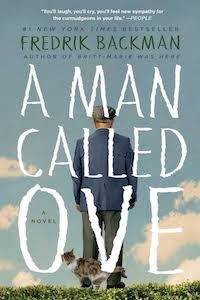 A Man Called Ove by Fredrik Backman, translated by Henning Koch
A Man Called Ove by Fredrik Backman, translated by Henning Koch
I really, really wanted to hate this book, and I succeeded for at least the first half of it. Everyone talked about it in this gushy, adoring tone, about this misunderstood protagonist with a heart of gold. And I went in thinking, “I don’t need another story teaching me empathy for some crotchety old white guy. Been there, done that. There’s no way this book will get to me.” But then, somewhere in Ove’s story, I realized he’d gotten to me. By the end of the book, I was a sobbing, snotty, emotional mess. I set out to hate A Man Called Ove, but I didn’t stand a chance.
—Susie Dumond
What book did you set out to hate and end up loving? Tell us your hate-turned-love book story in the comments! You may also enjoy:
African American Classics I Wish I’d Read in School
The Best Books You’ve Never Heard Of, April 2019
Short and (Bitter)Sweet: 6 One-Sitting Tearjerkers








